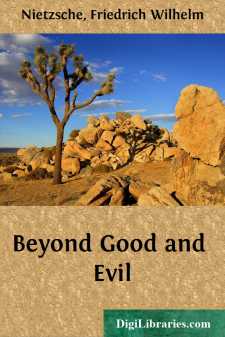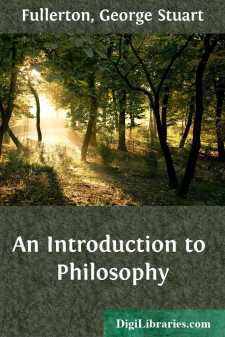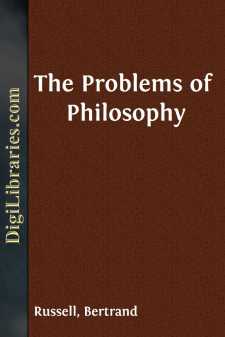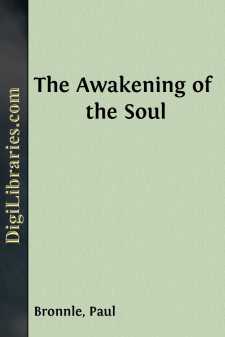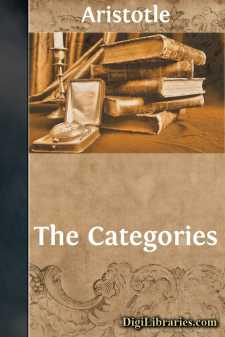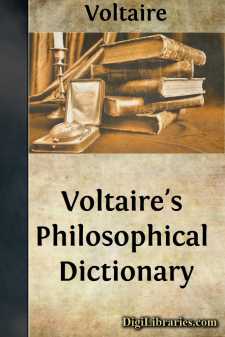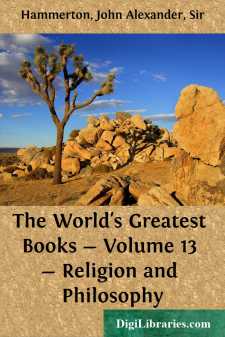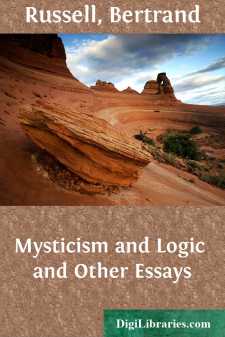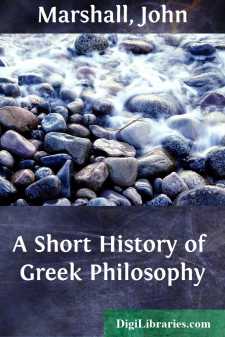Philosophy
- Aesthetics 11
- Eastern 1
- Ethics & Moral Philosophy 2
- General 30
- Hindu 2
- History & Surveys 3
- Logic 1
- Metaphysics 3
- Political 1
- Religious 7
- Social 3
- Taoist 1
Philosophy Books
Sort by:
PREFACE SUPPOSING that Truth is a woman—what then? Is there not ground for suspecting that all philosophers, in so far as they have been dogmatists, have failed to understand women—that the terrible seriousness and clumsy importunity with which they have usually paid their addresses to Truth, have been unskilled and unseemly methods for winning a woman? Certainly she has never allowed herself to be...
more...
I. INTRODUCTORY CHAPTER I THE MEANING OF THE WORD "PHILOSOPHY" IN THE PAST AND IN THE PRESENT I must warn the reader at the outset that the title of this chapter seems to promise a great deal more than he will find carried out in the chapter itself. To tell all that philosophy has meant in the past, and all that it means to various classes of men in the present, would be a task of no small...
more...
by:
Muhammad Yusuf
Rehan, a sharp but impulsive journalist, finds himself at the center of multiple conflicts—at work, in his family, and within himself. He has a habit of confronting issues head-on, often fighting the visible enemy without seeking the hidden root cause. When a personal crisis threatens to ruin his career and relationships, he embarks on a journey of self-discovery, realizing that true resolution lies...
more...
by:
Bertrand Russell
CHAPTER I. APPEARANCE AND REALITY Is there any knowledge in the world which is so certain that no reasonable man could doubt it? This question, which at first sight might not seem difficult, is really one of the most difficult that can be asked. When we have realized the obstacles in the way of a straightforward and confident answer, we shall be well launched on the study of philosophy—for philosophy...
more...
by:
Paul Bronnle
INTRODUCTION It is to two English scholars, father and son, Edward Pococke, senior and junior, that the world is indebted for the knowledge of one of the most charming productions Arabian philosophy can boast of. Generally looked upon as a subject of repulsive aridity, in its strange combination of the most heterogeneous philosophical systems, devoid of the grace and charm of attractive style,...
more...
by:
Aristotle
Part 1 Things are said to be named 'equivocally' when, though they have a common name, the definition corresponding with the name differs for each. Thus, a real man and a figure in a picture can both lay claim to the name 'animal'; yet these are equivocally so named, for, though they have a common name, the definition corresponding with the name differs for each. For should any one...
more...
by:
Voltaire
ADULTERY Note on a Magistrate Written about 1764 A senior magistrate of a French town had the misfortune to have a wife who was debauched by a priest before her marriage, and who since covered herself with disgrace by public scandals: he was so moderate as to leave her without noise. This man, about forty years old, vigorous and of agreeable appearance, needs a woman; he is too scrupulous to seek to...
more...
Religion THE APOCRYPHA Apocrypha is a Greek word, signifying "secret" or "hidden," but in the sixteenth century it came to be applied to a list of books contained in the Septuagint, or Greek translation of the Old Testament, but not in the Palestinian, or Hebrew Canon. Hence, by theological or bibliographic purists, these books were not regarded as genuine Scripture. That view was...
more...
by:
Bertrand Russell
MYSTICISM AND LOGIC Metaphysics, or the attempt to conceive the world as a whole by means of thought, has been developed, from the first, by the union and conflict of two very different human impulses, the one urging men towards mysticism, the other urging them towards science. Some men have achieved greatness through one of these impulses alone, others through the other alone: in Hume, for example,...
more...
by:
John Marshall
THE SCHOOL OF MILETUS The question of Thales—Water the beginning of things—Soul in all things—Mystery in science—Abstraction and reality—Theory of development I. THALES.—For several centuries prior to the great Persian invasions of Greece, perhaps the very greatest and wealthiest city of the Greek world was Miletus. Situate about the centre of the Ionian coasts of Asia Minor, with four...
more...


